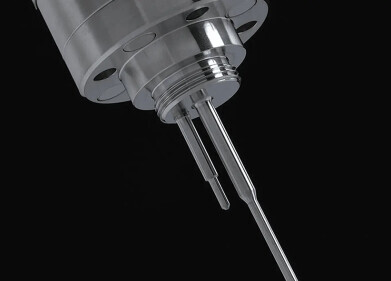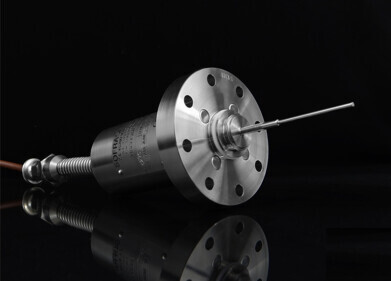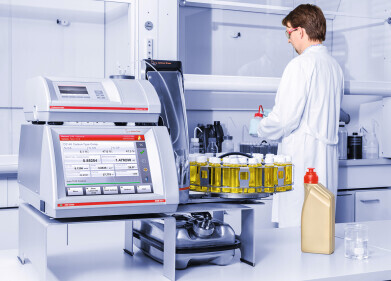Viscometer
Reliable Viscosity Determination Directly in the Production Line
Apr 11 2012
The exploration and subsequent operation of crude oil wells are supported by the accurate viscosity measurement of fracturing fluids and drilling muds. Further downstream, the viscosity of crude oil affects the amount of fluid that can be transported in a pipeline during a specific period of time. Accurate knowledge of the viscosity allows operators to determine the energy required to run a pump for a specific product. This significantly reduces the operating costs. Practical application of viscosity measurement data often leads to the need for in-process control of viscosity. Process viscometers have important applications in the real-time quality and process control for the petroleum industry achievable by no other means. In-process viscometers instantly detect changes in viscosity and allow the viscosity to be adjusted accordingly before it can affect exploration, transportation or product quality. Using process viscosity measurement ensures that the process is operating within specified viscosity parameters and enables manufacturers to significantly improve product quality, increase manufacturing efficiency, rapidly respond to processing problems.
Established commercial instruments such as rotational, vibrating, and capillary viscometers may suffer from short lifetime or inadequate performance under harsh conditions. Typical problems are friction-loaded torque measurements, undefined shear rate, density dependence, poor sample replacement, small penetration depth, as well as sensitivity to pressure, vibration, and flow rate.
Anton Paar (Austria) has developed a unique rotational process viscometer – L-Vis 510 - based on a fluid dynamic measurement principle. L-Vis 510 is immersed directly in the production liquid in the pipework or tank so no bypass is required. It continuously measures and displays the viscosity and temperature, allowing 24-hour monitoring of petroleum products. Drops in pressure or flow rate do not affect the measurement results. L-Vis 510 achieves excellent repeatability, even under harsh process conditions such as pressure and temperature variations and when measuring abrasive and inhomogeneous fluids and suspensions.
Anton Paar’s inline viscometer is built to the same high standards of performance and value as its laboratory viscometers and rheometers, with particular attention devoted to making instruments that are rugged and easy to maintain for long service in demanding industrial environments.
Digital Edition
PIN 25.5 Oct/Nov 2024
November 2024
Analytical Instrumentation - Picturing Viscosity – How Can a Viscometer or a Rheometer Benefit You? - Sustainable Grease Formulations: Evaluating Key Performance Parameters and Testing Method...
View all digital editions
Events
Jan 20 2025 San Diego, CA, USA
Jan 22 2025 Tokyo, Japan
Jan 25 2025 San Diego, CA, USA
SPE Hydraulic Fracturing Technology Conference and Exhibition
Feb 04 2025 The Woodlands, TX, USA
Feb 05 2025 Guangzhou, China



















